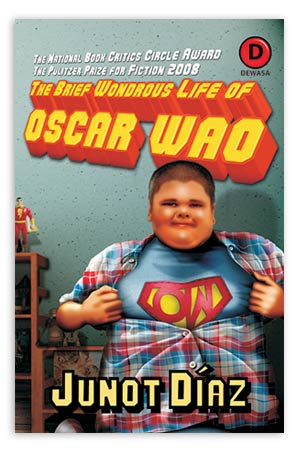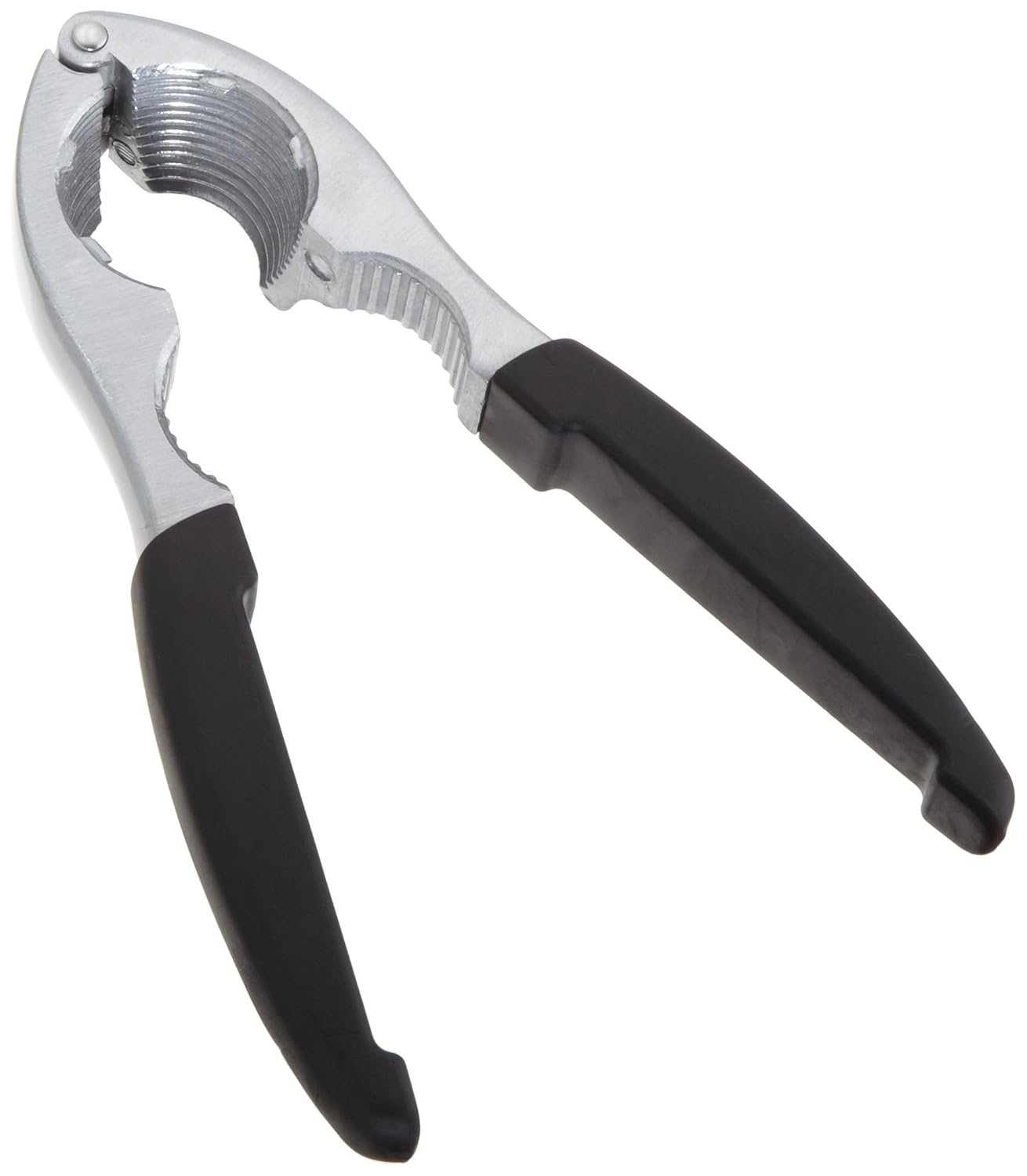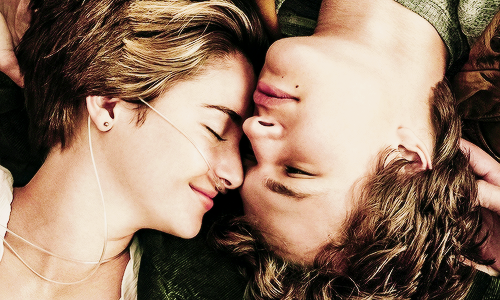Friday, box-office records were shattered as John Green fans flocked to the theaters for the premier of The Fault in Our Stars, the film adaptation of his mega-bestselling YA novel. If you haven't read the book yet and intend to, though, please make sure you are 17 or under. If not, you are an embarrassment to yourself and other adults everywhere. An embarrassment.
At least, that's the pronouncement by Ruth Graham, a writer who caused a bit of a stir with this article published in Slate magazine this week. In it, Graham wags the naughty stick at adult readers who play in the kiddie pool of YA fiction. As she bluntly puts it, "Adults should feel embarrassed about reading literature written for children." Marching straight out of Corinthians 13:11, she exhorts us to put away our childish ways and resign ourselves to our grim fates: nothing but a diet of literary broccoli sprouts for you, old readers! Fun times are over.
Some of our readers here might be surprised to find me less than sympathetic to Graham's attitude, since I've often professed my belief that reading challenging material stretches a person and reading junky books does not. I am not one who thinks reading, all by itself, is edifying. I would rather my kids sit down in front of quality television than curl up with Twilight. But I also think pleasure for pleasure's sake is a fine thing. In Graham's world, to the contrary, if you are getting pleasure from a YA book you're doing it wrong. "The very ways that YA is pleasurable are at odds with the way that adult fiction is pleasurable," she writes. One imagines Graham's "pleasurable adult fiction" existing in a lofty airless room, white and sterile, at the top of an ivory tower—with YA books relegated to a basement full of crayons and stuffed animals.
Cormac McCarthy, you say? That's not what Graham's talking about; that's not literature. Well, McCarthy won a Pulitzer for The Road, a novel as creepy as any Stephen King and as likely to be appreciate by a teen audience. Which underlines yet another problem with Graham's piece: the division between genres is often arbitrary. Salinger, with his angsty adolescent protagonists, would likely be marketed as YA today. And anyone who has read Junot Diaz (another Pulitzer winner) will have a hard time distinguishing his sex-crazed, profanity-spewing young protagonists from those produced by a YA writer. I've read dozens of award-winning adult literary books in the past few years that have caused me, here and there, to cringe. No so for Graham, apparently, who claims, "I think of John Updike and Alice Munro and other authors whose work has only become richer to me as I have grown older, and which never makes me roll my eyes." Really? Updike? The man who was notorious for writing terrible sex scenes? One example: "He loved it when she would clamp his face between her thighs like a nutcracker and come." Like a nutcracker. Not even a tiny eye roll for that one, Ms. Graham?
So I have a few guesses to make about Graham: she hasn't read Updike recently, she doesn't read much of what she's judging, and she doesn't have teenage kids. That final point is important, because most adults I know who read YA do so because their kids are reading it. It's conventional wisdom that teenagers want to be left alone, don't want adults listening to their music or reading their books, and Graham echoes this. But is it true? The teenagers I know, including my own kids and those of my friends, enjoy having cultural touchpoints in common with adults. Both my kids not only read many of the same books I do, but actively look to me for book suggestions. My oldest child, 16, reads YA but in the past year has also read The Poisonwood Bible, The Life of Pi, Oryx & Crake, Purple Hibiscus, The Kite Runner, and Never Let Me Go—voluntarily. Some teachers at her school formed an extracurricular book club, just for fun, and plenty of teens signed up. They read only literary fiction. Right now she is reading another John Green novel, but she's also reading this book by Joshua Greene.
If my kids didn't want me "camped out" in their book world, they probably wouldn't be recommending their own books to me, would they? And yet if they discover a book they love, they not only encourage me to read it, they sometimes pester me to. That's how I ended up reading The Fault in Our Stars, in fact: I was harassed into it—and glad to be. My daughter and I had a great time discussing it afterward, and now we're bugging little brother to read it. Although we might simply go to see it in the theaters...if Ruth Graham and the YA police will let me in.






Ruth Graham is dead wrong on this. There is no evidence anywhere that says reading YA literature stunts one's growth as a reader. The fact that adults have become more interested in YA fiction is due to the expanded number of titles in that area, and the fact that much of it deals with pretty serious stuff.
ReplyDeleteI recently completed The Fault In Our Stars & thought it was quite good. The voices of the young characters were not childish in the least; the way the parents and other adults deal with the issues of teen cancer patients is well-thought-out.
If you see the movie let us know what you think.
I will do that! And I agree with you about how the parents were depicted in TFIOS. Green handled that with great empathy.
Delete"He loved it when she would clamp his face between her thighs like a nutcracker and come."
ReplyDeleteLOL!!
Excellent article, Sister Steph. Totally agree with you. I can understand a certain frustration with the overwhelming popularity of YA in adult fiction writers, but there is a huge leap from a minor annoyance to her blunt statements! What about all those coming-of-age movies and TV shows (The Wonder Years, Freaks and Geeks, Stand by Me, etc) which are obviously written for adults to evoke nostalgia, should we also be embarrassed if we enjoy those?
I expect Graham considers only BBC period dramas to be worthwhile TV watching. :P Or documentaries.
DeleteThis is kind of a petty thing to be nitpicking about in my opinion. Adults read YA fiction. So what? Grant it, it's not my favorite genre to read, but there's obviously an audience out there for it. YA has changed a lot in the last 15-20 years. YA writers of today try to play into both teen and adult markets, which is no easy feat. Sometimes it works and sometimes it backfires horribly. It's all about taste at what a reader likes. I'm surprised Graham hasn't gone on a rant about romance or sci-fi! There are two genres that have become so repetitive that you've basically read the whole story with the back cover synopsis. But, like all fiction, there are lovers of these genres as well, and none of them are going away anytime soon over a dissatisfied reader like Graham.
ReplyDeleteGood post!
"There are two genres that have become so repetitive that you've basically read the whole story with the back cover synopsis." Ha! So true!
DeleteThey call this sort of article "click bait" because it's at once sensational, and it's "low hanging fruit" which makes YA an easy target to exploit...thus clicks on the link, widespread sharing, and stats go up for Slate. I intentionally have not read the article but have commented on the posts like this in opposition to it.
DeleteNext week the new shame will be about bodice rippers, because everybody knows modern romance lit is all about Fabio covers and damsels getting their clothes ripped off.
I'm trying to finish The Fault in Our Stars before seeing the movie...today, I think! I'm 30 percent through...not sure I'm going to make it. I read middle grade and chapter books extensively as research for writing those novels. If I didn't write them, I probably wouldn't read them--but I'd definitely read YA without shame. I just read a middle grade novel (for tweens) set in New York and learned quite a bit about the city. You can learn a lot just from reading in general.
ReplyDeleteI think we can all agree those opinions are just that, and clearly meant to provoke. Many of us who grew up in the 90s or earlier didn't have a huge amount of books targeted to us, and for many who I know, this surge of adults reading YA is because we're gravitating toward what we wish we'd had then (making up for lost time?) and oh, THEY ARE GOOD BOOKS. Yes, you'll have your Twilights just like you'll have your DaVinci Codes in the adult market. There are just as much commercial drivel in the adult market as there is in kid lit.
ReplyDeleteMy teacher cousin buys her father, a very intellectual man and a big reader of historical non-fiction, a kids book every year. Usually an award winner. One year she bought Holes and I read his copy in one day while visiting for Christmas. That book is incredible, a great story, and very well written. I was in my 20s and the book is for middle schoolers. I'd recommend that over a James Patterson book any day.
But that's me preaching to the already-knows-this choir. Read what you like and don't let people tell you that you need to feel shame. That's just people trying to control you for whatever BS reasons they think bring them esteem. Some people are classy, others are journalists.*
*I say as a former journalist major ;)